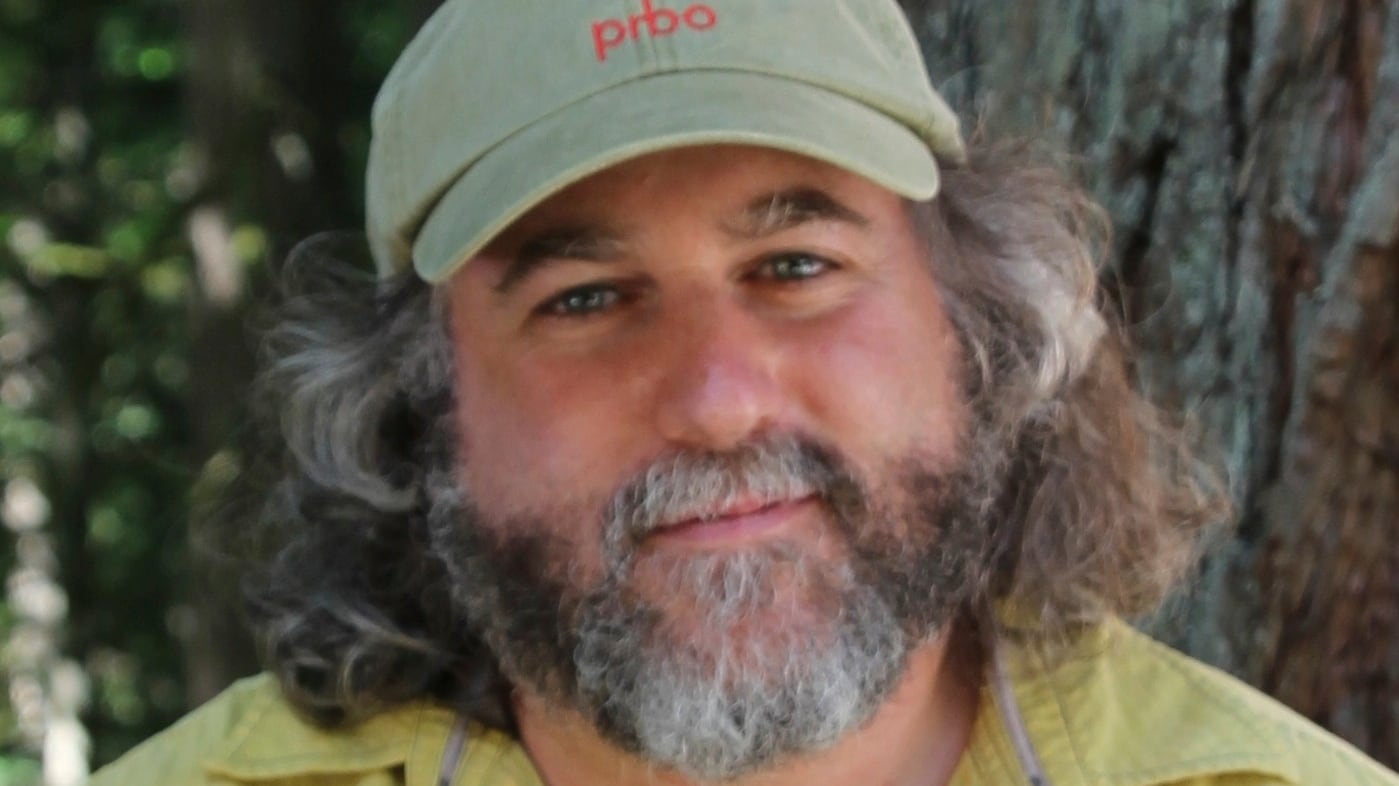If ever a person embodied the term “fierce, tireless advocate,” in the best sense of those words, that person was Bob Sallinger, who died unexpectedly while working late at his office at Willamette Riverkeeper in Oregon City on Oct. 31. He was 57.
Sallinger served as executive director for that organization, as well as executive director of another environmental nonprofit he founded, Bird Conservation Oregon.
“I and our staff at Willamette Riverkeeper are deeply shocked by his untimely passing and are grieving his loss alongside his family,” said Michelle Emmons, Riverkeeper’s deputy director. “Bob was my colleague, a mentor and, most importantly, my friend. He was one of the most kind and steady voices of leadership that I had the honor to work with. In the spirit of conservation, he was a force to be reckoned with, but always held his ground with respectful discourse, and led our team at Willamette Riverkeeper with the utmost integrity, transparency, and collaborative partnership.”
Mike Houck, director of the Urban Greenspaces Institute, collaborated frequently with Sallinger, persuading Dr. Robert Pamplin, for instance, to donate part of Ross Island to the city of Portland in 2007.
“With Bob Sallinger’s passing I have lost a friend, colleague and the fiercest conservation warrior I’ve ever known,” Houck said. “We worked side by side for decades on a multitude of urban conservation issues. Bob was a leader in shaping Metro’s Parks and Nature agenda which protected thousands of acres of natural areas. He led the fight to protect 600-acre West Hayden Island and single-handedly created safe nesting sites for urban peregrine falcons. When he wasn’t protecting their habitats, he was nursing injured wildlife to be released back into those same habitats.”
For more than 30 years before taking the helm of Riverkeeper and starting Bird Conservation Oregon, Sallinger worked at the Bird Alliance of Oregon (formerly Portland Audubon), serving for most of that time as conservation director. He plunged into virtually every major environmental issue, from West Hayden Island in North Portland to Sand Island near the mouth of the Columbia River (where conflict between double-crested cormorants and salmon played out tragically) to the long disputes over water and habitat in the Klamath River basin in Southern Oregon.
In addition to his day jobs, at the time of his death, Sallinger served on the Elliott State Research Forest Board, Urban Flood Safety and Water Quality District Board, Portland Utility Board, Intertwine Alliance Board, and as president of the Board of Humane Voters Oregon.
Among the many awards he won: the Oregon Chapter of the Wildlife Society David B. Marshall Lifetime Achievement Award, the U.S. Fish and Wildlife Special Achievement Award for work recovering peregrine falcons, the Oregon Land Board Partnership Award for collaboration, and leadership awards from Friends of Trees, Columbia Slough Watershed Council, Raging Grannies, and Depave.
A 2022 interview Sallinger did with the publication Animals24-7.org gives a sense of the extraordinary range of issues in which he was involved.
Sallinger graduated from Reed College with a degree in biology and then earned a law degree at the Lewis & Clark School of Law, focusing on environmental law. He testified regularly at City Hall, in the Legislature and in front of the boards of state natural resource agencies. Policymakers—and reporters—knew he would show up well prepared and ready for battle underneath a sprawling shock of unruly hair and behind an even more untamed beard. And unlike some advocates, Sallinger excelled at behind-the-scenes scut work and also sought compromise.
One example: While at the Audubon Society, Sallinger found a middle ground with cat fanciers, who, as vice-presidential candidate J.D. Vance has learned, are a passionate group.
Here’s how then-WW reporter Andrea Damewood explained the relationship in a 2013 cover story.
“In much of the country, a war simmers in what The New York Times calls a ‘strange Sylvester-and-Tweety feud between birders and cat fanciers.’ But in Portland, the factions have formed a rare detente,” Damewood wrote.
“Conservation director Bob Sallinger of the Audubon Society of Oregon says it comes down to the fact that both sides care deeply for animals.
‘Everywhere else, there’s constant bickering, fighting, vilifying each other,’ Sallinger says. ‘At the end of the day, trap-neuter-return is an experiment. But what I tell my friends in the bird community is, it may not work, but we already have 100 years of failure behind us.’”
One of Sallinger’s last big victories came Oct. 15, when the Oregon State Land Board approved a management plan for the Elliott State Research Forest, bringing to close a major chapter in a contentious and complex seven-year process. Vicki Walker, director of the Department of State Lands, worked closely with Sallinger throughout that process, as well as on an unrelated effort to compel Ross Island Sand & Gravel to reclaim the damage done to Ross Island by more than 75 years of mining and processing rock.
“Bob Sallinger was an Oregon wonder, a human as special as the places and creatures he loved and protected,” Walker says. “Bob’s legacy is all around us. It’s the hoot of the owls in the Elliott State Research Forest, a cannonball into the Willamette River, peregrines dancing across the sky.”
Sallinger leaves a giant pair of hiking boots to fill.
“Bird Conservation Oregon is saddened and devastated by the unexpected passing of Bob Sallinger,” said Kaitlin Lovell, a member of the organization’s board. “No one, living or past, has done more for environmental conservation in the Portland region or across the state than Bob Sallinger.”
Sallinger is survived by his wife, Elisabeth, three children, and their assortment of dogs, cats, goats and chickens.
